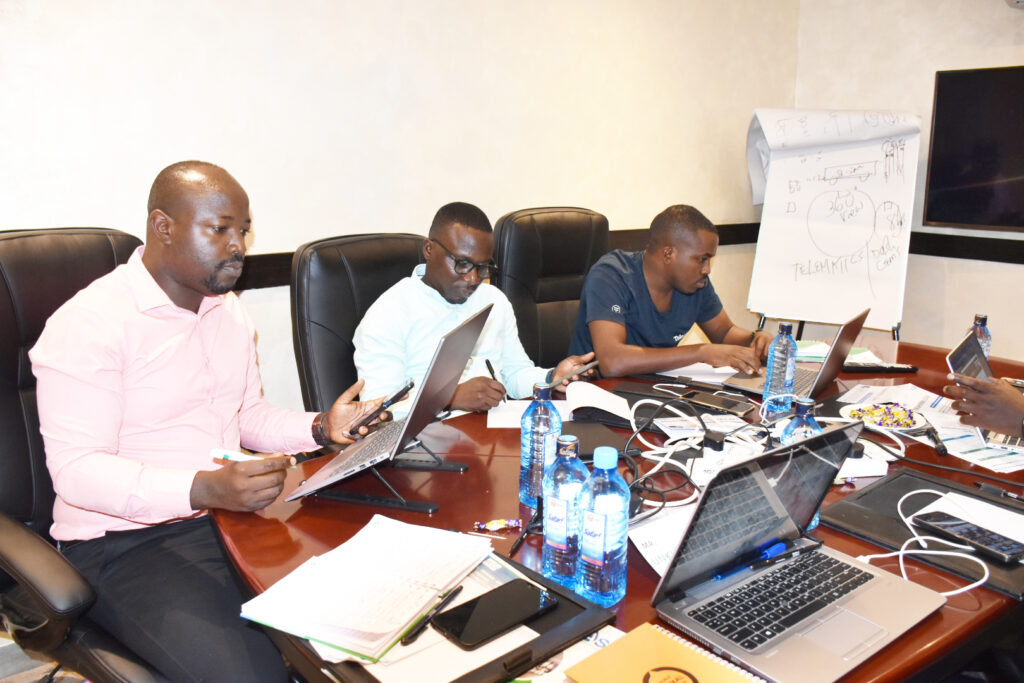
CONCEPT NOTE
INTERNATIONAL TRAINING ON CLIMATE-SMART CROP PRODUCTION
COURSE BACKGROUND
The impact of climate change on crop production is a global challenge that requires innovative, sustainable, and climate-resilient solutions. Climate-smart agriculture (CSA) focuses on developing practices that ensure crop production systems are resilient to climate variability while maintaining productivity and profitability. This course explores the relationship between crop production and climate change, emphasizing sustainable practices that contribute to economic growth and food security. It examines how both annual and perennial crops can be grown more efficiently and effectively, considering the impact of climate change on key agricultural systems such as soil, water, biodiversity, and pest management.
Climate-Smart Crop Production offers a thorough understanding of sustainable agricultural practices and provides participants with actionable tools and strategies for fostering growth in a variety of crop systems. This course is designed to equip individuals with the knowledge and skills to adopt climate-smart approaches that enhance crop resilience and productivity while addressing broader environmental and socio-economic challenges. Whether for smallholder farmers or large-scale agribusinesses, this course provides insights into mitigating the risks posed by climate change and improving overall farm performance.
COURSE OBJECTIVES OF THE TRAINING
By the end of this course, participants will be able to:
- Understand the impacts of climate change on crop production and agriculture at large.
- Implement climate-smart practices to improve soil health, manage water resources, control pests, and enhance biodiversity.
- Apply climate-smart management in different crop production systems, including annual, horticultural, and grassland farming.
- Analyze off-farm elements that influence the successful adoption of climate-smart practices in agricultural systems.
- Develop practical strategies for increasing climate resilience in agricultural systems.
WHAT YOU WILL LEARN
Participants will acquire knowledge and skills that are essential for successfully navigating the challenges posed by climate change in agriculture. These include:
- The expected impacts of climate change on crop production systems and their socio-economic implications.
- The role of climate-smart management practices for soil, land, water, pests, and biodiversity.
- How to apply climate-smart practices to annual, horticultural, and grassland crop production systems.
- The importance of creating an enabling environment for the adoption of climate-smart crop practices through policy, education, and infrastructure.
DURATION AND PROGRAM
TARGET PARTICIPANTS
This course is designed for a wide audience, including policy makers, development practitioners, program managers, academics, trainers, and extension agents. It is particularly relevant for those working in the agriculture, environmental sustainability, and rural development sectors who seek to understand and implement climate-smart strategies. Professionals involved in shaping agricultural policies or supporting farmers’ adoption of sustainable practices will gain valuable insights into how climate change impacts crop production and how to address these challenges through informed decision-making. Academics, sectoral specialists, and those working on agricultural development programs will also benefit from the comprehensive and practical knowledge provided by this course.
TRAINING STYLE
The modules will be taught through PowerPoint presentations, and lectures and will include a case study/field visit, breakout sessions, case studies and other interactive discussion components.
The course will also include a few guest speakers, both in person and via Zoom and other online learning platforms for overseas speakers. This provides useful real-world insights alongside the more theoretical aspects of the course.
The conference faculty shall consist of experienced decision makers, as well as practitioners and representatives from established educational and research institutions active around climate change, engineering and international development. Throughout the course, theoretical presentation of concepts will be moderated and more group discussions and plenary engagements will be optimized. PowerPoint presentations will be made by facilitators and resource persons, to highlight key concepts before embarking on group work.
TRAINING MODULES
| No | Module | Details | |
| 1. | Introduction to Climate-Smart Crop Production |
This module serves as an overview of climate-smart agriculture, introducing the core concepts of climate change and its implications on crop production.
The key objectives include:
|
|
| 2. | Climate-Smart Crop Production Practices and Technologies |
This module dives into specific practices and technologies that promote sustainability and climate resilience in crop production.
Key objectives include:
|
|
| 3. | Climate-Smart Crop Production Systems in Practice |
This module focuses on the practical application of climate-smart practices in diverse crop production systems.
Key objectives are:
|
|
| 4. | Creating an Enabling Environment for Climate-Smart Crop Production |
The final module addresses the external factors, policies, and strategies needed to support and scale the adoption of climate-smart practices across regions.
Key objectives include:
|
|
GENERAL NOTES
- Training manuals and additional reference materials are provided to the participants.
- Upon successful completion of this course, participants will be issued with a certificate.
- We can also do this as a tailor-made course to meet organization-wide needs. Contact us to find out more: info@ecasiafrica.org.
- Payment should be sent to our bank account before the start of training and proof of payment sent to: info@ecasiafrica.org.
ABOUT ECAS INSTITUTE
The ECAS Institute designs and delivers independent and targeted training, research, and consulting services. Our work focusses on climate change and resilience building, carbon markets, renewable energy, nature-based solution, biodiversity conservation, agriculture and food systems, We are located in Nairobi Kenya and work across the African region. We have implemented training and research assignments in Kenya, Tanzania, Uganda, South Sudan, Somalia, Malawi, Rwanda, Congo, and South Africa. Globally, we have supported our partners from the UK, Denmark, Italy, Sweden, Germany, and USA.

